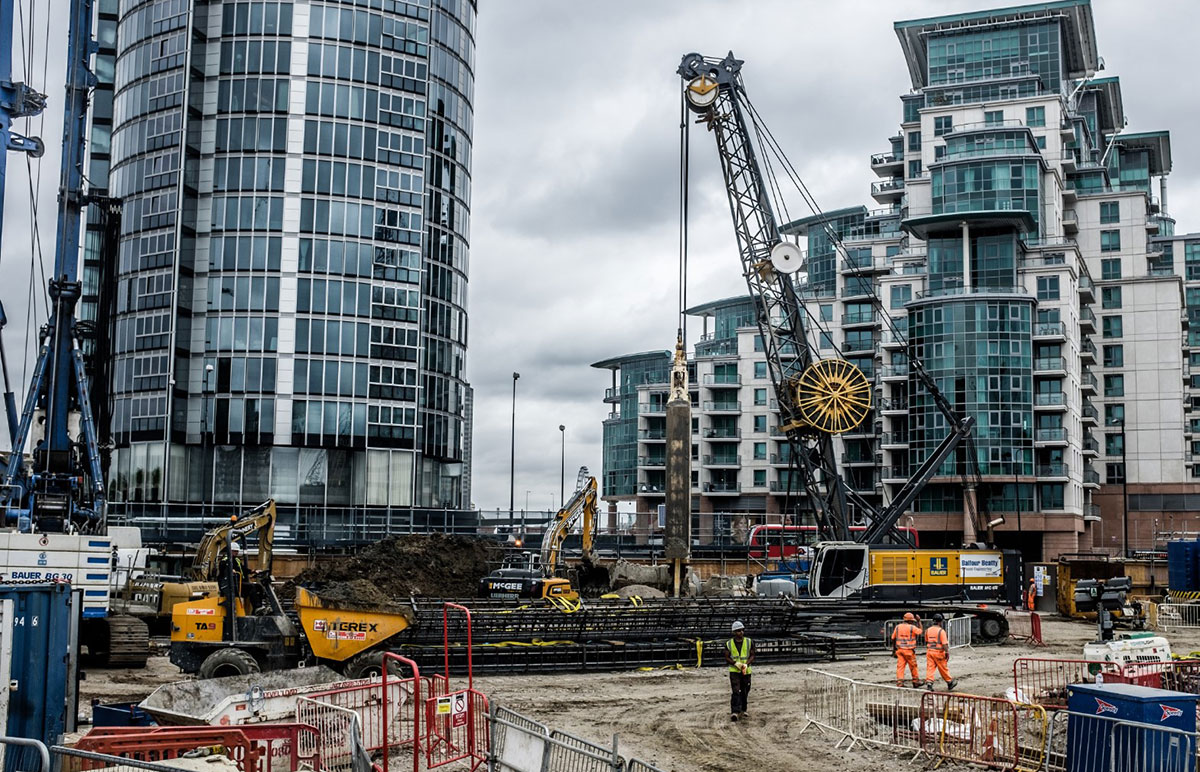The Definitive Guide to Geotheta
Wiki Article
Facts About Geotheta Revealed
Table of ContentsUnknown Facts About GeothetaThe Facts About Geotheta UncoveredWhat Does Geotheta Mean?The Geotheta StatementsNot known Factual Statements About Geotheta

They carry out website investigations, gather examples, execute laboratory examinations, and assess data to review the viability of the ground for construction jobs - Geotechnical Engineers. Based on their findings, geotechnical engineers supply suggestions for foundation layout, slope security, retaining structures, and reduction of geotechnical threats. They team up with various other specialists, such as engineers, structural designers, and construction teams, to ensure that geotechnical factors to consider are incorporated right into the general project design and execution
By analyzing the habits and homes of soil and rock, they can recognize possible geotechnical risks such as landslides, soil settlement, or incline instability. Their knowledge aids protect against failings or mishaps that might endanger lives and residential property. Here are some detailed tasks and obligations of a geotechnical designer: Site Investigation: Geotechnical designers conduct site examinations to collect information on subsurface conditions.
They interpret the data to understand the homes and habits of the soil and rock, including their strength, leaks in the structure, compaction features, and groundwater problems. Geotechnical Analysis and Design: Geotechnical engineers evaluate the data collected during site examinations to evaluate the stability and suitability of the site for building tasks. They execute geotechnical estimations and modeling to assess variables such as bearing capacity, settlement, slope stability, lateral earth stress, and groundwater circulation.
More About Geotheta
Structure Design: Geotechnical designers play an important function in developing structures that can securely support the designated structure. They examine the dirt conditions and lots requirements to figure out the appropriate foundation kind, such as superficial foundations (e.g., grounds), deep structures (e.g (https://www.cheaperseeker.com/u/geotheta)., heaps), or specialized methods like soil improvement. They consider factors such as negotiation limitations, bearing ability, and soil-structure interaction to create optimum foundation layoutsThey evaluate construction strategies, monitor site tasks, and perform field examinations to validate that the design referrals are complied with. If unexpected geotechnical concerns develop, they assess the scenario and provide referrals for remediation or changes to the design. Threat Assessment and Mitigation: Geotechnical designers evaluate geotechnical threats and risks connected with the project website, such as landslides, liquefaction, or dirt erosion.

Partnership and Communication: Geotechnical engineers work very closely with other experts associated with a job, such as engineers, structural engineers, and construction groups. Reliable interaction and collaboration are important to integrate geotechnical considerations into the total project design and construction procedure. Geotechnical engineers provide technological knowledge, response questions, and guarantee that geotechnical requirements are met.
Geotheta for Beginners
Below are some types of geotechnical engineers: Foundation Engineer: Foundation designers concentrate on creating and assessing structures for structures. They analyze the dirt conditions, tons needs, and site features to figure out the most suitable foundation type and style, such as shallow foundations, deep structures, or specialized methods like pile foundations.They assess the aspects affecting incline security, such as soil residential or commercial properties, groundwater problems, and incline geometry, and establish methods to stop incline failings and alleviate dangers. Quake Engineer: Earthquake designers concentrate on evaluating and developing frameworks to hold up against seismic forces. They examine the seismic risk of a site, examine soil liquefaction potential, and establish seismic style criteria to make certain the security and resilience of frameworks during earthquakes.
They carry out area testing, accumulate examples, and analyze the accumulated data to identify the soil buildings, geologic formations, and groundwater problems at a site. Geotechnical Instrumentation Designer: Geotechnical instrumentation engineers concentrate on monitoring and gauging the habits of dirt, rock, and structures. They install and preserve instrumentation systems that keep track of variables such as soil settlement, groundwater degrees, slope motions, and architectural variations to assess efficiency and offer very early cautions of potential problems.
Not known Details About Geotheta
They carry out examinations such as triaxial examinations, loan consolidation tests, direct shear tests, and permeability tests to gather information for geotechnical evaluation and layout. Geosynthetics Designer: Geosynthetics engineers focus on the layout and application of geosynthetic materials, such as geotextiles, geogrids, and geomembranes. They utilize these materials to boost soil stability, enhance slopes, give drain remedies, and control disintegration.They tend to be investigative individuals, which implies they're intellectual, introspective, and investigative. They wonder, systematic, rational, logical, and logical. Some of them are also social, implying they're kind, generous, cooperative, patient, caring, useful, compassionate, skillful, and friendly. Does this sound like you? Take our totally free profession test to discover if geotechnical engineer is among your top profession matches.
In the office environment, geotechnical designers utilize specialized software devices to do computations, produce styles, and analyze data. They prepare records, testimonial task specifications, communicate with clients and employee, and coordinate task tasks. The workplace setting offers a favorable setting for study, analysis, and collaboration with other specialists associated with the job.
The Best Guide To Geotheta
They frequently check out task sites to carry out website investigations, examine geotechnical problems, and gather data for evaluation. These check outs involve taking a trip to different places, occasionally in remote or difficult surfaces. Geotechnical designers check my blog may do dirt sampling, conduct tests, and screen building tasks to ensure that the geotechnical aspects of the project are being carried out appropriately.Geotechnical engineers also operate in specialized geotechnical research laboratories. In these facilities, they conduct experiments, carry out tests on dirt and rock samples, and evaluate the engineering residential properties of the materials. Geotechnical laboratory engineers function extensively in these environments, handling screening devices, operating tools, and taping information. They work together with various other laboratory personnel to make certain exact and dependable testing results.
Report this wiki page